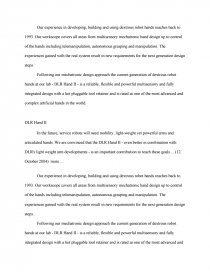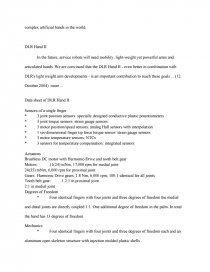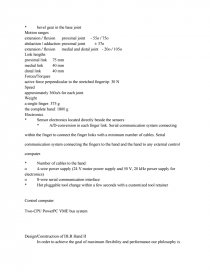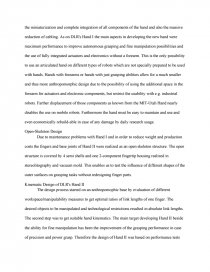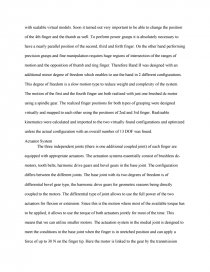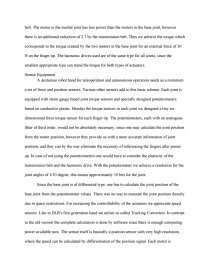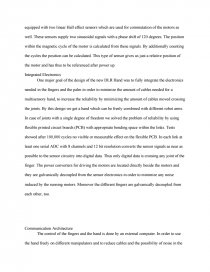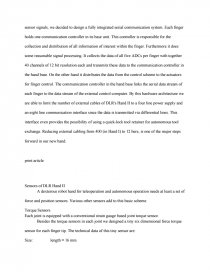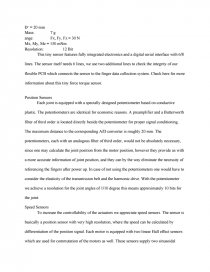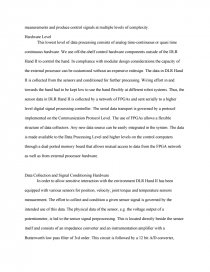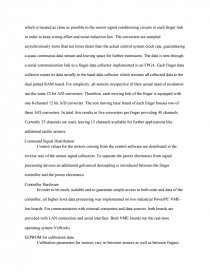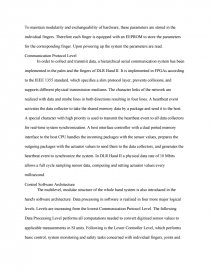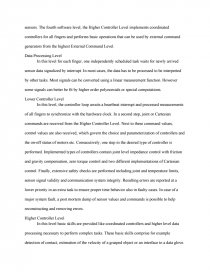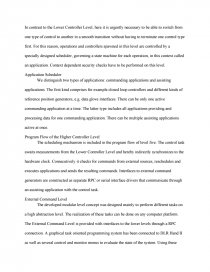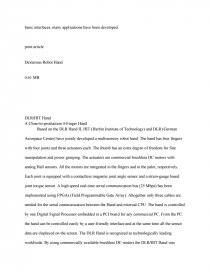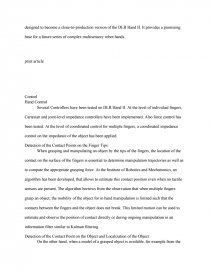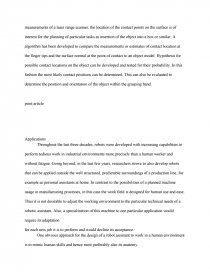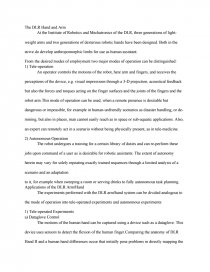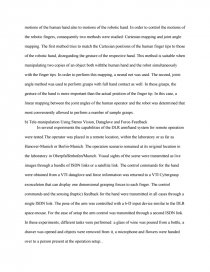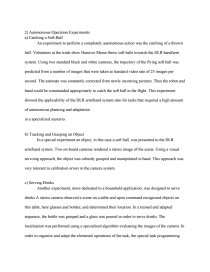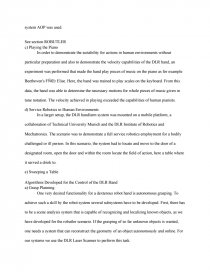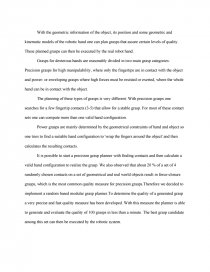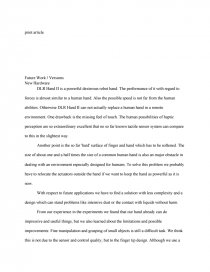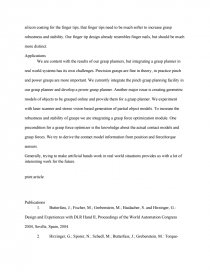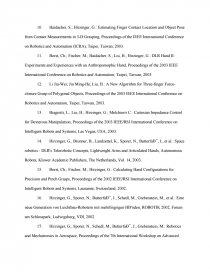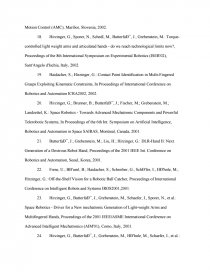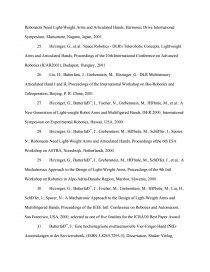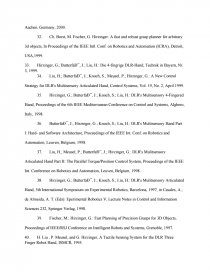Turbine
Essay by review • December 15, 2010 • Research Paper • 8,312 Words (34 Pages) • 1,440 Views
Essay Preview: Turbine
Our experience in developing, building and using dextrous robot hands reaches back to 1993. Our workscope covers all areas from multisensory mechatronic hand design up to control of the hands including telemanipulation, autonomous grasping and manipulation. The experiences gained with the real system result in new requirements for the next generation design steps.
Following our mechatronic design approach the current generation of dextrous robot hands at our lab - DLR Hand II - is a reliable, flexible and powerful multisensory and fully integrated design with a hot pluggable tool retainer and is rated as one of the most advanced and complex artificial hands in the world.
DLR Hand II
In the future, service robots will need mobility, light-weight yet powerful arms and articulated hands. We are convinced that the DLR Hand II - even better in combination with DLR's light weight arm developments - is an important contribution to reach these goals ... (12. October 2004) more ...
Our experience in developing, building and using dextrous robot hands reaches back to 1993. Our workscope covers all areas from multisensory mechatronic hand design up to control of the hands including telemanipulation, autonomous grasping and manipulation. The experiences gained with the real system result in new requirements for the next generation design steps.
Following our mechatronic design approach the current generation of dextrous robot hands at our lab - DLR Hand II - is a reliable, flexible and powerful multisensory and fully integrated design with a hot pluggable tool retainer and is rated as one of the most advanced and complex artificial hands in the world.
DLR Hand II
In the future, service robots will need mobility, light-weight yet powerful arms and articulated hands. We are convinced that the DLR Hand II - even better in combination with DLR's light weight arm developments - is an important contribution to reach these goals ... (12. October 2004) more ...
Data sheet of DLR Hand II
Sensors of a single finger
* 3 joint position sensors: specially designed conductive plastic potentiometers
* 3 joint torque sensors: strain gauge sensors
* 3 motor position/speed sensors: analog Hall sensors with interpolation
* 1 six-dimensional finger tip force torque sensor: strain gauge sensors
* 3 motor temperature sensors: NTCs
* 3 sensors for temperature compensation: integrated sensors
Actuators
Brushless DC motor with Harmonic-Drive and tooth belt gear
Motors: 11(24) mNm, 17,000 rpm for medial joint
24(35) mNm, 6,000 rpm for proximal joint
Gears: Harmonic Drive gears, 1.8 Nm, 6,000 rpm, 100:1 identical for all joints
Tooth belt gear: 1.2:1 in proximal joint
2:1 in medial joint
Degrees of Freedom
* Four identical fingers with four joints and three degrees of freedom the medial and distal joints are directly coupled 1:1. One additional degree of freedom in the palm. In total the hand has 13 degrees of freedom.
Mechanics
* Four identical fingers with four joints and three degrees of freedom each and an aluminum open skeleton structure with injection molded plastic shells
* bevel gear in the base joint
Motion ranges
extension / flexion proximal joint - 55o / 75o
abduction / adduction proximal joint ± 37o
extension / flexion medial and distal joint - 20o / 105o
Link lengths
proximal link 75 mm
medial link 40 mm
distal link 40 mm
Forces/Torques
active force perpendicular to the stretched fingertip: 30 N
Speed
approximately 360o/s for each joint
Weight
a single finger: 375 g
the complete hand: 1800 g
Electronics
* Sensor electronics located directly beside the sensors
* A/D-conversion in each finger link. Serial communication system connecting within the finger to connect the finger links with a minimum number of cables. Serial communication system connecting the fingers to the hand and the hand to any external control computer.
* Number of cables to the hand:
o 4-wire power supply (24 V motor power supply and 50 V, 20 kHz power supply for electronics)
o 8-wire serial communication interface
* Hot pluggable tool change within a few seconds with a customized tool retainer
Control computer
Two-CPU PowerPC VME bus system
Design/Construction of DLR Hand II
In order to achieve the goal of maximum flexibility and performance our philosophy is the miniaturization and complete integration of all components of the hand and also the massive reduction of cabling. As on DLR's Hand I the main aspects in developing the new hand were maximum performance to improve autonomous grasping and fine manipulation possibilities and the use of fully integrated actuators and electronics without a forearm. This is the only possibility to use an articulated hand on different types of robots which are not specially prepared to be used with hands. Hands
...
...
